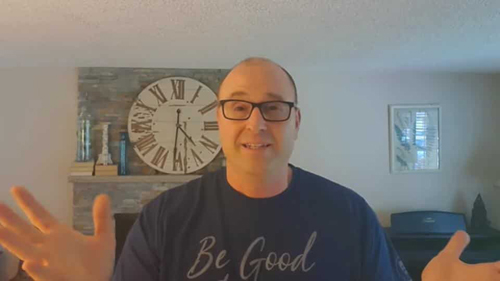Who Cares: Bathsheba and David…and Advocacy for the Abused
The effects of David’s sin tattooed Bathsheba’s life. But did anyone care?
It’s fascinating that the narrative in 2 Samuel 11 and 12 zeroes in on David’s perspective in such a way that David’s self-centered spiral into sin presses in on the reader even before David is aware of it. David is at home when he should be leading his troops. David is leering at the woman bathing. David inquires, then acquires. David lies with Bathsheba. David hatches a plot to cover his sin. David has Uriah killed when he doesn’t comply with the plan. And right after the allotted days of mourning end, David collects Bathsheba and adds her to the many women of his household. He’s self-absorbed and saturated in sin, without regard for his Lord, his neighbor or his country.
David cared for himself. Who cared for Bathsheba?
The effects of David’s sin tattooed Bathsheba’s life. But did anyone care?
It’s fascinating that the narrative in 2 Samuel 11 and 12 zeroes in on David’s perspective in such a way that David’s self-centered spiral into sin presses in on the reader even before David is aware of it. David is at home when he should be leading his troops. David is leering at the woman bathing. David inquires, then acquires. David lies with Bathsheba. David hatches a plot to cover his sin. David has Uriah killed when he doesn’t comply with the plan. And right after the allotted days of mourning end, David collects Bathsheba and adds her to the many women of his household. He’s self-absorbed and saturated in sin, without regard for his Lord, his neighbor or his country.
David cared for himself. Who cared for Bathsheba?
I wonder if Bathsheba asked that question. I certainly have. I have so many questions that the text is silent about: whether she missed her husband, Uriah, and worried for his life while he was away at war. How violated she must have felt in being leered at during what she thought were private moments during her bath. The terrible fear she must have experienced in facing the choice of whether to subject herself to the king-slash-peeping-Tom, or face the consequences of insubordination. I can’t imagine how Bathsheba held herself together in King David’s chambers while she was taken.
And then, a missed period. She was pregnant.
Later, her husband Uriah, the loyal soldier, is so, so close (a result of David’s attempt at a cover-up), but doesn’t enter into his house out of loyalty to his fellow troops. He could not rest and enjoy his wife because a battle raged on. Ironic; that’s precisely what David did.
Did Bathsheba see Uriah from her chambers? Did she have a moment of fleeting hope that her husband would come to deliver her, comfort her, and turn her world right-side up again? Would he still love her after he found out how she had been used?
Maybe she was too ashamed, too broken to look Uriah in the eye. But she would never have the chance again, since the one who took her would also arrange to take her husband’s life.
“The father of my child is the murderer of my husband.” Can you imagine uttering these words? How Bathsheba must have grieved; her chances to have children with her husband, forfeited. The evidence of her violation, growing inside of her. The wonder and joy of pregnancy muddled by loss, isolation, and violation.
Finally, there is some relief, some return to justice and mercy when Nathan the prophet confronts king David with a story to awaken him to his selfishness. In 2 Samuel 12, David finally sees clearly that he has sinned against God.
Nathan cares. And God cares.
God cares. He established Bathsheba in David’s kingdom, and she was never violated again. She was able to conceive, carry and bear a child again, and this time, without the shroud of shame. And her son was the next, and last, king of a unified Israel. Solomon was the wisest king to reign, and the most wealthy. Solomon built the temple of the Lord. Bathsheba is one of only 5 women mentioned in lineage of Jesus Christ, and with the name of her first husband, Uriah, to honor them both. So there is redemption, even through the grief, in the land of the living, for Bathsheba.
____________________________________________________________________
Who are the Bathshebas of our time? Who are the powerless whom we are called to protect with the righteous anger and bold confrontation of Nathan? Who are the voiceless, trapped in a life they didn’t create; misunderstood? A few Bathshebas come to mind, and I ask that you consider them, pray for them, advocate for them:
Child Sex Workers in Asia: Young girls are vulnerable; viewed as less valuable than boys, and considered a hardship in poor families, many of them are dumped at a brothel’s door. Educate yourself. Read their stories. Do not remain ignorant. Give to people and organizations who are setting children free.
Rape in the Congo: The Congo is the rape capital of the world. Forty-eight women are raped per hour in this country. Ask that God break your heart for the women–and men–who are violated in this way, and pray for them. Pray for the protection of women of all ages in that country. If you are a professional counselor, consider ways you can help women survive the trauma.
It’s overwhelming to think about all the people who need help. Consider how God made you to be a deliverer in your world of influence. Read stories that inspire.
Trafficking in the United States: you’ve heard about them; the strippers, the porn queens, the prostitutes. Someone you love is ensnared in pornography addiction. Or maybe you are. These women are already marginalized and objectified routinely, and many of them started out on the path of subjugation and abuse before they were of legal age. Pray that God would help you to see them as He does. Know the likely backdrop to their lives. Learn how to become an alert and active advocate.
Repent if you have benefitted the sex industry, through pornography, through indifference or condescension, or by dishonoring the Imago Dei. Like David, you can receive God's forgiveness. Because God sees. God cares.



2 Comments
Visitor
She Is Safe
Sharifa mentioned I should post about She Is Safe.
She Is Safe is a gospel-centered mission organization focusing entirely on prevention, rescue and restoration of vulnerable women and girls from abuse and exploitation (human trafficking as well as many other forms of abuse and exploitation). We work in the Middle East, North Africa, and Asia. Ultimately, we want to see every least-reached girl or woman safe and equipped to thrive: body, mind and soul. We have ways that you can be involved here in the states as well, check us out! http://sheissafe.org/engage/
Don Dinnerville
Metaxas at Prayer Breakfast, Nefarious
Eric Metaxas was part of a panel discussion last Thursday afternoon (after the National Prayer Breakfast) where they talked about trafficking and modern day slavery. I don't think that they recorded the panel discussion, but Metaxas' speech in the morning was great and touched on some of this. You can find a link to the recording of the Prayer Breakfast here – http://john629.ning.com/profiles/blogs/national-prayer-breakfast-2012. And I saw Nefarious: Merchant of Souls (http://www.